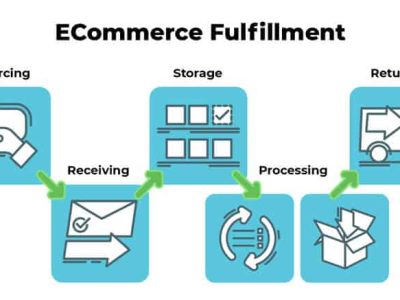I am currently in the middle a process of selling one of our portfolio businesses, and wanted to share a few useful tips so that your sale process runs as smoothly as possible. This article will concentrate on the “process” of the sale, to help you better understand how you can use it to your advantage and get the fastest sale at the best price.
When Should you Sell your Business?
Your business’s condition is the first factor to consider when determining whether or not to sell. It will be difficult to sell your company at a good price if you can’t clearly demonstrate growth in revenue and profit over the past couple of years. If there are any negative external factors affecting your industry (e.g. COVID affecting restaurant demand), you should wait until these external factors have been resolved.
Business prospects is the second factor to consider when determining whether to sell. Do you have a positive or negative outlook on the future? Why sell now if you are bullish? Wait to gain additional revenue and profits before selling. If you are bearish and see that the company is about to hit a brick wall, it may be best to exit before revenues begin to fall. In a typical scenario, the buyer is doing their due diligence and will want to know that revenues are likely to continue to grow once they take over. In all cases, you should be able to easily answer how your revenues will increase in the future. If you can’t sell the story of future growth in a credible way, then they won’t be interested.
Your personal psyche is the third factor in determining when to sell. Are you bored, tired or burned out? It might be time to move forward. You may need to change your team if you are not enjoying it anymore. It might be time to sell. You may need to sell your home if you want more time with family or cash for another project. It’s time to consider selling. Assess your personal situation and you will be able to determine the best direction for you.
Who Should Manage the Sale Process?
The size of your business will determine how you choose to sell it. Selling a business for sale in Auckland with less than $500K in profit is more of a “do-it-yourself” task, as the business will be too small to attract the attention of reputable business brokers. There are plenty of websites where you can list your business for sale to help get it discovered by potential buyers for a minimal listing fee. Look at other listings of businesses to find out what information and content to include in your own listing. You should have an attorney assist you in the negotiation and documentation of your sale agreement.
If you have a larger company, you should always hire a business broker who is licensed and trustworthy to help you sell your business. They can assist with the entire process, from drafting the sales brochure to creating buyer lists and contacting them, to negotiating and helping you reach the finish line. Business brokers are available in many shapes and sizes. They usually focus on specific geographical areas, industries, or company sizes. Do some research online or with your professional network to find the best business broker that suits your situation. Business brokers usually charge a retainer fee (e.g. $10,000 per month), plus a success commission (e.g. 3%-8%) based on the size of the sale.
Who Should Buy my Business?
Three types of buyers are common:
(i), strategic buyers who are already in your industry,
(ii), financial buyers looking to invest or
(iii), other entrepreneurs seeking new businesses. The valuations are usually ranked according to the same categories. A strategic buyer will be able to see many ways that “one plus one equals three” and can get synergies from their business.
Financial buyers and entrepreneurs will typically look for the best deals. Start with the strategic, and then move on. Think about other things, such as:
(i), do I trust the buyer to run my company (especially when earn-outs are involved); and
(ii), will they treat my team fairly or keep them in place if they leave;
(iii), do they have their purchase proceeds in hand, both for equity and any loans needed? You will soon learn that not all buyers have the same qualities. Do your due diligence and let them do theirs on you.
How Quickly Should the Process Go ?
Typically, a normal sale takes six months. In the first month, you prepare your marketing materials and buyer lists. The second month, you do outreach to these buyers. The third month, you answer questions and make calls to interested parties. It could take longer depending on the market conditions. If investors are concerned about the economy, or the interest rate situation, they will not be as interested in investing until these issues are resolved.
How Should you Approach Negotiating ?
The market will always be the market. Buyers may tell you that you’re worth something else, even though you think otherwise. Be flexible. If you have 10 points to negotiate, choose the most important and “dig in” on them. Be flexible with the rest. Negotiation is two-way and both parties must be satisfied to reach the end. In all cases, I follow two rules:
(i), your first offers will usually be your most interested buyers, and you’ll have the best chance of reaching the finish line.
(ii), time is the enemy of all deals. The longer the negotiation process lasts, the more likely the buyer becomes frustrated or uninterested, and leaves. Do not sabotage yourself by being unreasonable, inflexible or moving too slowly.
What Should I Expect to Pay for a Valuation ?
The valuation is directly proportional:
(i), to your industry,
(ii), to the size of your revenue/profits and
(iii), growth rate. You may be in an industry that is hot, such as artificial intelligence. Or, you might be in a dull industry like car washes. Do you sell a business with a revenue of $50MM or $5MM? Do you grow at 50% or 5% per year? All of these questions are important and affect valuation. Be realistic about what you should expect by researching what similar businesses sold for in the recent past. Your EBITDA sales multiplier will be between 3x and 10x EBITDA for revenues between $1MM and $50MM.
Final Thoughts
It can be exciting to sell your business, but also a difficult process. Surround yourself with people who have already “been there, done that” and can guide you through the process. This includes hiring an experienced M&A attorney, a good broker and requesting mentorship from those who have sold their business successfully. Do not hesitate to contact us if you need help. Best of luck!













Comments